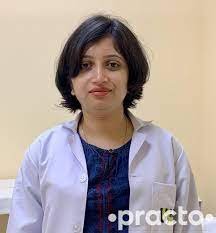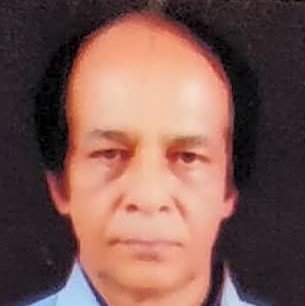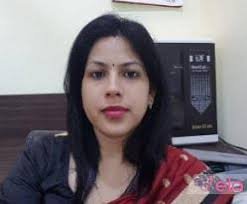Best Cancer Hospitals in Bhubaneswar

Utkal Hospital
Chandrasekharpur, BhubaneswarMulti-Specialty Hospital
Defence Colony, Neeladri Vihar, Bhubaneswar, Odisha
9570 KM's away
Specialities
18Doctors
18Beds
0










Health Village Hospital
Nayapalli, BhubaneswarMulti-Specialty Hospital
15/1, Civic Centre, Road Number 1, Block N5, IRC Village
9571 KM's away
Specialities
22Doctors
7Beds
0







Utkal Hospital
Chandrasekharpur, BhubaneswarMulti-Specialty Hospital
Plot Number C/3, Defence Colony, Neeladri Vihar
9570 KM's away
Specialities
14Doctors
4Beds
0



Questions & Answers on "Cancer" (368)
Melanoma skin cancer in stage 4 . How I increase survival rate
Female | 44
Stage 4 melanoma skin cancer means the disease has moved to other body parts. You may notice weird moles, spots that change, and feel unwell. Too much sunlight exposure causes it. Treatments like surgery, chemo, immunotherapy, and targeted therapy help. But survival rates rise by listening to your oncologist and checking regularly.
Answered on 28th Aug '24
Read answer
Thymoma a1 in hiv positive person
Male | 48
Thymoma is a rare tumor in the thymus gland and can sometimes be seen in individuals with compromised immune systems, like those living with HIV. Common signs include difficulty breathing, chest pain, and fatigue. While the exact cause of thymoma isn't fully understood, a weakened immune response can play a role. It's essential to maintain regular check-ups with your oncologist, as they can tailor treatment to your needs, including monitoring, surgery, or other therapies. Always reach out to your doctor for any new symptoms or concerns.
Answered on 23rd Mar '25
Read answer
My father had to go through prostate gland surgery two times. First time in 2016 in Siliguri and 2nd one is from Amri Hospital, Mukundapur, Kolkata in 2021. Both the biopsy reports came negative. But the doctor said it might happen again. My question is if we had to operate another time, would it be cancerous?
Many a time prostate gland increases in size without any cancerous component called as Benign prostate hypertrophy which occurs due to age factor. Every time the surgery is done, some tissue is always sent for histopathological investigation which shows whether the disease is cancerous or not.
After any cancer surgery and chemotherapy sessions it is mandatory to have regular follow up visits with an oncologist to check any signs of disease. There are many side effects of surgery and chemotherapy which also has to be dealt with, that is the reason why even though cancer free but regular follow up is mandatory.
Answered on 23rd May '24
Read answer
Hello, I am experiencing some symptoms of Prostate Cancer. Is there any way to check if you have prostate cancer or not without visiting a hospital?
Consulting a clinician and getting thoroughly evaluated is the right way to get yourself diagnosed and treated. Just searching, reading and trying to match your symptoms to a particular disease will lead to unnecessary stress, anxiety and delay in treatment. So please get examined by Urology Consultation doctors in Mumbai, or any city of convenience, and if some pathology is detected then get treated.
Answered on 23rd May '24
Read answer
Since last month, I have been feeling bloated and uncomfortable all the time. Initially I thought of acidity problems and tried usual medicine and home remedies. However, since last week feeling a kind of pain as well. I visited our family doctor in Bahrampur and he added further tests including pelvic and stomach ultrasounds. I read about all these on the internet. My blood report didn't come good and I'm waiting for the ultrasound report as well. Am I experiencing pancreatic cancer symptoms?
Male | 25
Bloating, fullness and discomfort of abdomen in females should be taken seriously, especially in post-menopausal women. A correct diagnosis will require ultrasound of abdomen pelvis and further evaluation with CT scan or MRI. Also few tumor markers like CA-125, CEA, AFP, etc can take is closer to the diagnosis
Answered on 23rd May '24
Read answer
What is the AML blood cancer and is it very serious issue and what exact treatmnet it requires to get recovered?
Male | 45
It's a type of blood cancer that affects the bone marrow and blood cells. It is considered a serious and aggressive form of leukemia. Treatment aims to achieve remission, which means having no signs of leukemia in the blood and bone marrow. The treatment plan includes chemotherapy, stem cell transplant, targeted therapy, and supportive care. Recovery chances vary based on individual factors,
Answered on 23rd May '24
Read answer
My relative has mixed ovarian tumour (serous/mucinous type)...what is it and can it be treated successfully ?
Answered on 23rd May '24
Read answer
How long can one live after he/she is diagnosed with cancer stage 4? Is it possible to treat stage 4 cancer?
The survival of the patient with cancer to a great extent depends on type of cancer, stage of Cancer, location of the cancer, general condition of patient, age of the patient, associated comorbidities and many other factors.
Any cancer stage 4 does not have a good prognosis. Consult experts through this page - 10 Best Oncologist In India. They on evaluation of the cause will guide through the required treatment.
Answered on 23rd May '24
Read answer
I'm sorry if I bother you, if you don't mind me asking something related to lung cancer, I have a family member who is sick with lung cancer, it's in the fourth stage and he's very tired, he's lost weight and he won't eat anything, I'm from Kosovo and I went to Google to look for a specialist doctor for this disease to help me with at least a little of their experience with this disease and I'm wondering if you can help me and advise me on any herbal medicine that can help my family because even chemotherapy hasn't had any effect on them
Female | 48
Lung cancer can lead to symptoms like fatigue, weight loss, and decreased appetite. It is vital to prioritize your family member's comfort and nutrition. While some explore herbal remedies, these should complement, not replace, medical treatments. I strongly encourage you to consult a oncologist who can offer personalized advice and possibly adjust the treatment plan.
Answered on 12th Feb '25
Read answer
My maternal aunt is diagonised with cancer. She is in the first stage and Dr. From TATA said for operation. But her financial condition is not good. Is there any option for subsidies treatment to save her life.
Female | 56
There are many government schemes and programs in India that provide financial assistance for cancer treatment like the Pradhan Mantri Jan Arogya Yojana (PMJAY), also known as Ayushman Bharat. You can check if your aunt is eligible for this scheme, and if so, she can avail cashless treatment for cancer in any empaneled hospital. You can check thjere are various non-governmental organizations (NGOs) and cancer foundations for financial assistance.
Answered on 23rd May '24
Read answer
I harira bano age 46years female I AM suffering to bleeding nose early breast cancer treatment taken
Female | 46
Answered on 23rd May '24
Read answer
My father is suffering from cancer. He has esophagus stage 4 and lungs also affected . Now blockage are increasing and able to take liquids only. He is able to roam little bit. We are taking some ayurvedic medicine which are not working well. what are the options we have to treat him. Can we go chemotherapy to control disease.
Male | 74
Menstruation Disorders: Symptoms, Causes & More
Menstruation disorders – the menstrual cycle (menstruation) is a condition indicating a change in the functioning of the organs of the reproductive system. This disorder occurs in almost all women, the cause of their development can be both physiological and pathological disorders.
Before treating menstruation disorders, it is important to undergo a series of examinations, the results of which will help the doctor determine the main etiological factor and prescribe the necessary therapy.
Causes of menstruation disorders
The main cause of menstrual irregularities is considered to be hormonal dysfunction in women, which entails an unstable manifestation of bleeding. This condition can be conditionally divided into 3 main groups:
- Physiological – climate change, frequent nervous overstrain, inappropriate nutrition, menopause
- Pathological – gynecological diseases, chronic pathologies of internal organs and systems that have a negative impact on the work of the pelvic organs
- Medication – taking hormonal contraceptives, glucocorticoids, anticoagulants, anticonvulsants that can affect the menstrual cycle.
Violation of menstruation in women after 40 years is most often associated with age- related changes in the reproductive system. At this age, the depletion of the ovarian follicular reserve occurs, and the frequency of anovulatory cycles increases. Such changes in the female body are initially caused by irregular periods, dysfunctional uterine bleeding, then menopause.
In young girls, menstruation disorders is often associated with uneven maturation of the hypothalamic-pituitary and ovarian systems. Less commonly, congenital or acquired syndromes, chromosomal disorders, or reproductive system abnormalities can be the cause. Regardless of the cause, the treatment of the failure of menstruation should be carried out under the guidance of a gynecologist.
Symptoms of menstruation disorders
Depending on the etiological factor, menstrual irregularities can manifest themselves in different ways, therefore, a classification of clinical manifestations has been derived in gynecology, including:
- Algodismenorrhea – accompanied by pulling pains in the lower abdomen, nausea, headaches, menstruation failure
- Dysmenorrhea – an unstable cycle, manifests itself sharply without accompanying symptoms
- Hypermenorrhea – profuse flow of menstruation with a normal duration
- Menorrhagia – the cycle lasts up to 12 days with profuse bleeding
- Hypomenorrhea – scanty spotting
- Polymenorrhea – the interval between menstruation is not more than 21 days
- Oligomenorrhea – short periods with a duration of 1 – 2 days
- Opsomenorrhea – rare discharge at intervals of 1 time in 3 months.
In addition to the main clinical signs, there may be other symptoms that worsen a woman’s well-being and quality of life:
- Increased fatigue
- Irritability
- Decrease or increase in body weight
- Pain in the lower back or lower abdomen of varying intensity
- Nausea
- Frequent headaches, migraines.
All of the above symptoms should not be ignored by the doctor, who, after the results of the examination, will be able to determine the cause, make the correct diagnosis, choose the necessary therapy, and give recommendations.
How and what to treat
When a woman has a menstrual disorder, the doctor will necessarily prescribe a number of instrumental and laboratory tests:
- Ultrasound
- Histological analysis
- Colposcopy
- Flora smear
- Dad test
- Analysis of blood, urine
- Infectious screening.
The research results will help the doctor get a complete picture, determine the cause, and, if necessary, select drug therapy.
Treatment for menstrual irregularities directly depends on the cause, concomitant symptoms and characteristics of the patient’s body. If physiological reasons are the cause, it is enough to normalize the regime of the day and rest, monitor nutrition, and avoid physical and psychological stress.
When the cycle is disrupted due to infections, inflammatory processes of the ovaries, antibacterial drugs, uroseptics, hormonal drugs, physiotherapy, vitamin therapy are prescribed. Herbal medicine is prescribed as an aid. The choice of any drug always remains with the attending physician, who will select the required dose and duration of administration.
To regulate menstruation, doctors often advise to follow a diet, to exclude contact with any provoking factors. If the failure of menstruation occurs due to damage to the cervix, the woman may be prescribed surgical treatment.
Treatment and Prevention Tips
In order to avoid menstrual irregularities, doctors in the field of gynecology recommend women and girls to monitor their health, not to self-medicate. Every woman must follow certain rules, as well as have the necessary information:
- Girls’ periods should begin at the age of 10-14 years
- Keep a menstrual calendar
- Visit a gynecologist at least once every 6 months
- Timely treat all gynecological diseases
- Not to self-medicate, uncontrolled intake of medications
- Balance the menu
- Lead an active and healthy lifestyle.
Answered on 23rd May '24
Read answer
How much is charge for treatment of breast cancer
Female | 23
Answered on 26th June '24
Read answer
Worried I have cancer to many systoms
Male | 57
Some symptoms like losing weight, lumps, and feeling tired often make us fear cancer. But lots of other factors can also cause these signs. Weight changes, lumpy areas, constant fatigue – these might be worrisome, yet they don't necessarily mean cancer. Sure, cancer remains a possibility if symptoms persist. Many other reasons exist for such symptoms. If concerned, consult a doctor – they'll provide guidance.
Answered on 24th July '24
Read answer
What is moderately differentiated squamous cell carcinoma lung? What are the treatment options?
Male | 37
It is a type of lung cancer grouped under non small cell lung cancer. The treatment depends in stage. It could be surgery, chemotherapy and/or radiation therapy.
Answered on 23rd May '24
Read answer
How i knew i had uterine cancer?
Female | 54
If you have uterine cancer, you may notice:
- Bleeding per vaginum
- and then go ahead with USG abdomen
Answered on 23rd May '24
Read answer
Cirrhotic patient for 12 years having HCC, bilirubin 14.57,metastasis in lungs. Any treatment possible?
Male | 76
For a cirrhotic patient with hepatocellular carcinoma and lung metastasis, treatment options can vary. You must consult with a professional oncologist or hepatologist for personalized advice.
Possible treatments are transarterial chemoembolization, radiofrequency ablation, systemic therapy, or palliative care, which depends on patient condition..
Answered on 23rd May '24
Read answer
Can we give blood after 1 week of gfc treatment
Male | 21
You need to wait before giving blood after GFC treatment. Your body requires time to recover; it lost cells during the procedure. Don't give blood too soon - at least one week is best. That lets your body rebuild the blood cells affected by treatment. Donating blood earlier could make you tired or dizzy. Wait a week to be safe after GFC.
Answered on 25th July '24
Read answer
Hello, what are the early symptoms of Pancreatic cancer that a person can detect?
In many cases there are often no signs and symptoms, until the pancreatic cancer has reached an advanced stage. Even when there may be some early signs and symptoms, they are often vague, so patients tend to ignore them or doctors sometimes attribute them to some other disease.
Some of the early symptoms of pancreatic cancer that need to be taken seriously include:
- Jaundice (with or without itching)
- Dark urine or light-colored stool
- General symptoms such as back pain, Fatigue or weakness
- Pancreatitis
- New-onset diabetes in an adult
- Unexplained weight loss
- Loss of appetite
- Malnutrition
- Nausea
- Vomiting
- Abdominal pain, others.
Consult oncologists. Hope our answer helps you.
Answered on 23rd May '24
Read answer
I am from Raipur. I have an ovarian cyst and the situation is very complex. My doctor referred me to gynecology oncology. But here, facilities are not advanced, and I don't know whom to consult. Can you please recommend a good oncologist for my situation?
Answered on 23rd May '24
Read answer
Get Free Assistance!
Fill out this form and our health expert will get back to you.